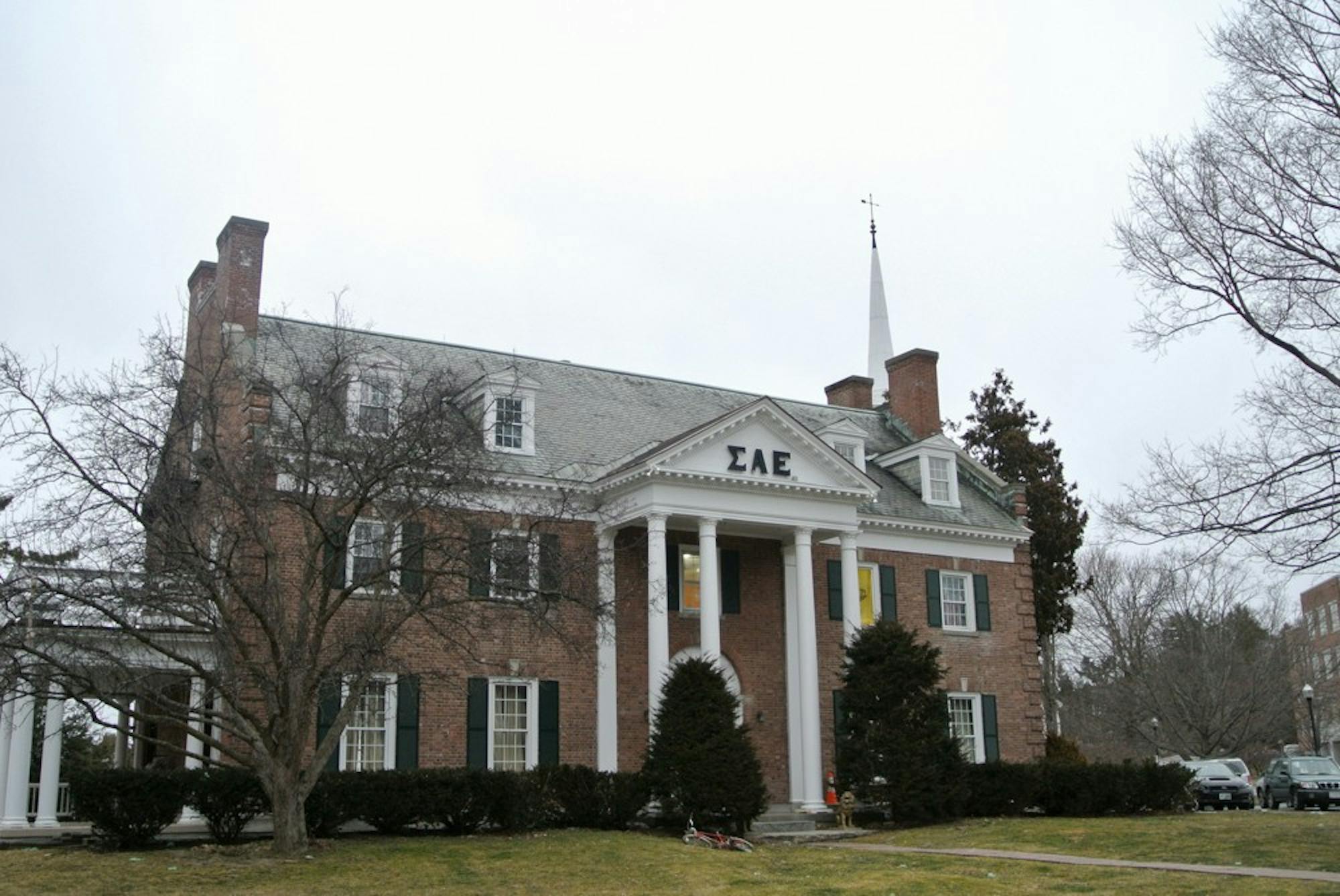The Hanover Zoning Board of Adjustment voted unanimously on Monday evening to grant Sigma Alpha Epsilon fraternity's appeal for continued use of their house as a student residence. The appeal argued that the residence is not a violation of town zoning ordinances because the fraternity gave sufficient evidence that they should be "grandfathered" in under previous zoning ordinances.
This decision only comments on the legality of the house’s use as a student residence, not on whether the College will continue to allow students to live in it. In a letter to campus on June 22, 2015, then Interim Dean of the College Inge-Lise Ameer announced that students at the College may not live in an unrecognized Greek, undergraduate or senior society facility. The policy had been in effect until 2011 before being reinstated at the start of the 2015 summer term.
The argument is similar to the one Alpha Delta fraternity made last June. AD was also derecognized by the College and forced to vacate by the town. In that case, the board declined to grant the appeal, ruling that AD did not present enough evidence to warrant grandfathered status.
Originally, the board ruled that SAE could not continue to house students after its derecognition in February because it was no longer “operated in conjunction with another institutional use,” part of the current definition of a “student residence.” However, this definition was not adopted until 1976, at which time SAE was already serving as a student residence. Under the previous ordinance, adopted in 1961, SAE was zoned in a general residence, or GR, district, where one of the permitted uses was “fraternity or dormitory for students or personnel of an institution.”
In their decision, the board cited a previous ruling that students living in college residences will potentially have their health and safety overseen to some degree by the College, whereas non-student residences will not have this same supervision. To demonstrate that they should be considered grandfathered in, SAE needed to demonstrate that before and during the 1976 ordinance’s adoption the College was not “exercising any appreciable health or safety oversight over the residential lives of students living at SAE.”
While the board commented that AD did not provide any evidence that they had operated in a manner other than “in conjunction with Dartmouth College” under earlier definitions, they said that SAE gave a “substantial” amount. The ruling cited testimony from several former presidents and members of SAE who claimed that during their time at the fraternity the College did not provide any oversight of students’ residential lives. Unlike in the AD case, the College did not provide counter-evidence to challenge SAE’s assertions.
In light of the evidence presented, the board found it unnecessary to consider SAE’s other arguments and upheld the appeal. They noted that the scope of the decision is relatively narrow, not applying to residences zoned after 1976 or necessarily to other fraternities. Furthermore, they noted that contrary evidence could be introduced if another party, such as the College, were to request a rehearing.
College spokesperson Diana Lawrence wrote in an email that the College cannot comment on the outcome until they have reviewed the decision.




